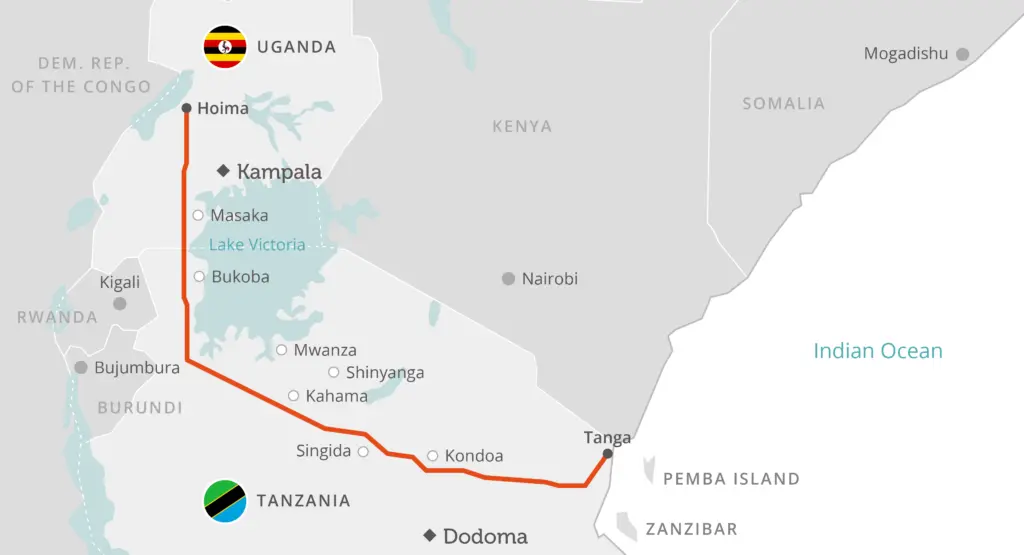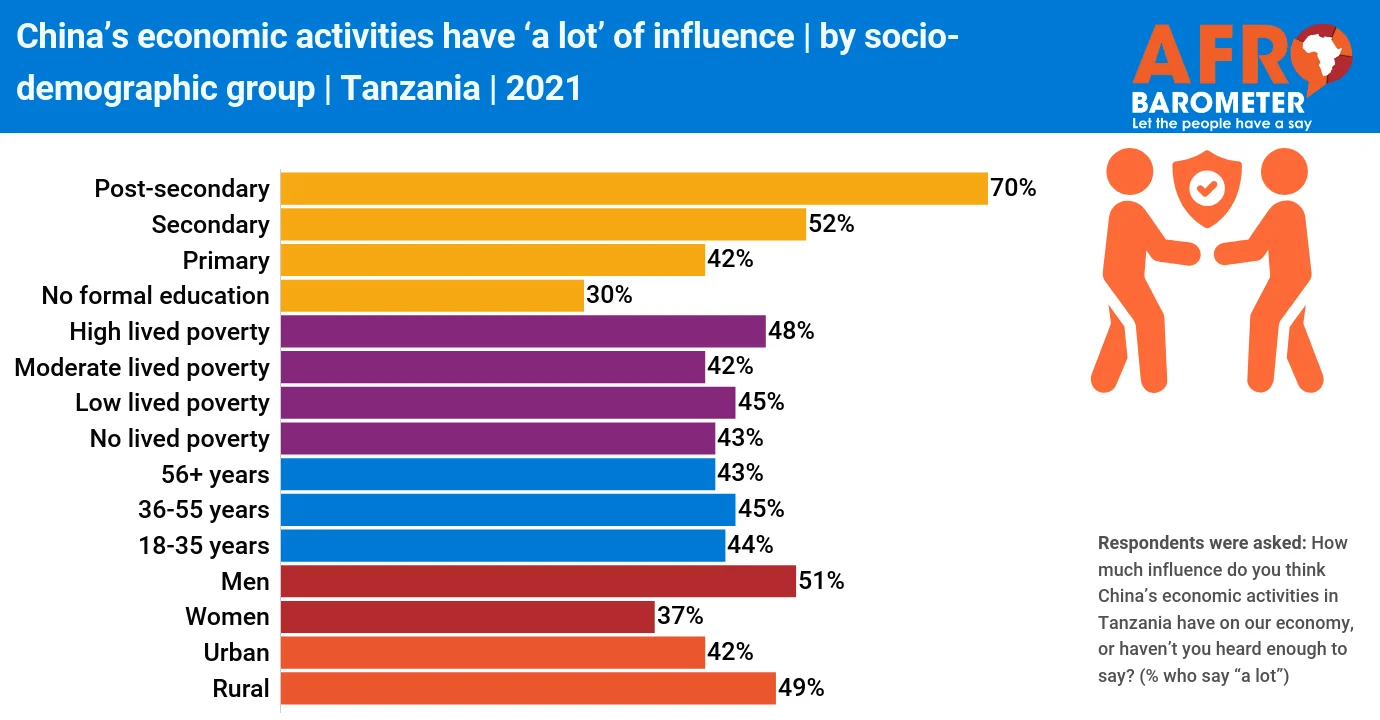What is happening with EACOP?
- A planned East African Crude Oil Pipe Line (EACOP) aims to transport crude oil from Uganda’s Lake Albert oilfields to Tanzania’s Indian Ocean coast. However, central Western banks withdrew investment in the project due to environmental group pressures.
- SCMP reports that China steps in to fill the financial void, with Chinese lenders covering over half the US$3 billion debt Uganda needs for the project. Uganda’s Ministry of Energy and Mineral Development is in talks with China Export & Credit Insurance Corporation (Sinosure) and the Export-Import Bank of China (Eximbank) to finance the East African Crude Oil Pipeline (EACOP).
- The total cost of the pipeline is about US$5 billion, set at a 60:40 debt-to-equity ratio. The funding structure includes TotalEnergies, Uganda National Oil Company, Tanzania Petroleum Development Corporation, and China National Offshore Oil Corporation among the stakeholders.
- This move comes after last year’s US$10 billion final investment decision covering the pipeline and the oilfield development, aiming to transition Uganda to an oil-exporting nation by 2025.
- Environmental groups launched a #StopEACOP campaign, causing many key financiers from the West to drop their investment plans. The European Parliament also passed a resolution urging a halt to the project due to environmental and human rights concerns. Uganda criticized the Western push to drop the oil plans, emphasizing the need for financing plans in the energy transition.
- The Chinese embassy in Uganda supported the project and criticized the European Union for attempting to interfere with Uganda’s oil ambitions using environmental and human rights as excuses.
Our Take
Imagine you have a big project in mind but need a helping hand to make it come true. First, some friends promise to help but back out when they see perceived problems. When things look tough, another friend comes with the support you need. This happens between Uganda, Tanzania, China, and the Western countries over a giant oil pipeline project.
The EACOP is a big deal for Uganda and Tanzania. It’s like a giant straw that will move oil from Uganda to Tanzania’s coast and then to the rest of the world. But building something like this needs a lot of money. At first, some banks from Western countries said they’d help. But then, they worried about harming nature and people’s lives, so they left. This is when China stepped in, ready to provide the money needed.
This is not just about one project. It’s a small part of the big picture. China is saying “yes” to Africa when others say “no,” especially when building essential things like roads, bridges, and this pipeline. China’s help comes with fewer rules. Unlike the Western countries, China doesn’t ask many questions about nature or how people are treated. This seems like a friendly offer to many African countries.
What China is doing is like offering a deal: “We help you build things, and we both benefit.” This simple deal is attracting many African countries. It’s like a friend offering to help without asking too many questions or telling you what to do.
Also, when people see new roads, bridges, or a pipeline being built, they see hope. They see a chance for better jobs and a better life. Even if they don’t understand all the big politics behind it, they see something good happening. No wonder China outranks the U.S. as a positive influence and development model in Tanzania, as shown by a recent Afrobarometer survey.
China’s help is not just about money. It’s like saying, “We believe in you” to Africa. And this message is becoming louder each day. More and more, it seems like China is becoming a dependable friend to many African countries. The pipeline project in Tanzania is just the latest example of this growing friendship.
This growing bond between China and Africa is like a new chapter in a big book. It’s a chapter that tells a story of changing friends and how help can come when least expected. And as this story unfolds, many are waiting to see what happens next.
Coal Sales to Europe: A Twist in the Tale
We talk about how European countries didn’t want to support the EACOP, pointing to worries about harming the environment. Yet, there’s a strange turn in the story. Now, coal from Tanzania is finding its way to European shores, which raises some eyebrows.
A company in Tanzania, Ruvuma Coal Ltd., made a deal with a company in Hong Kong, Kenexon Co., to sell coal. They have already sent 60,000 metric tons of coal to the Netherlands. This isn’t a minor side deal. These companies have shipped 300,000 metric tons of coal from Tanzania to China, India, and Europe in the past few months.
So, why is this a head-scratcher? Well, coal is known to be bad for the environment. It releases a lot of harmful stuff into the air when burned. Despite this, European countries who said ‘no’ to the oil project are saying ‘yes’ to coal from Tanzania.
The people in Tanzania are happy about this. They say the deal shows that their coal is now recognized worldwide. Also, they have improved their port, allowing them to send out coal more frequently. This is good for Tanzania’s business.
But, it leaves us wondering. Are the European countries apprehensive about the environment? Or is there something else going on? This coal deal shows that things aren’t as straightforward as they seem. While Europe steps back from the oil project, it opens its arms to coal, making the whole picture a bit muddy.
Also Read: Tanzania’s Graphite: The Investment and Geopolitical Landscape.


